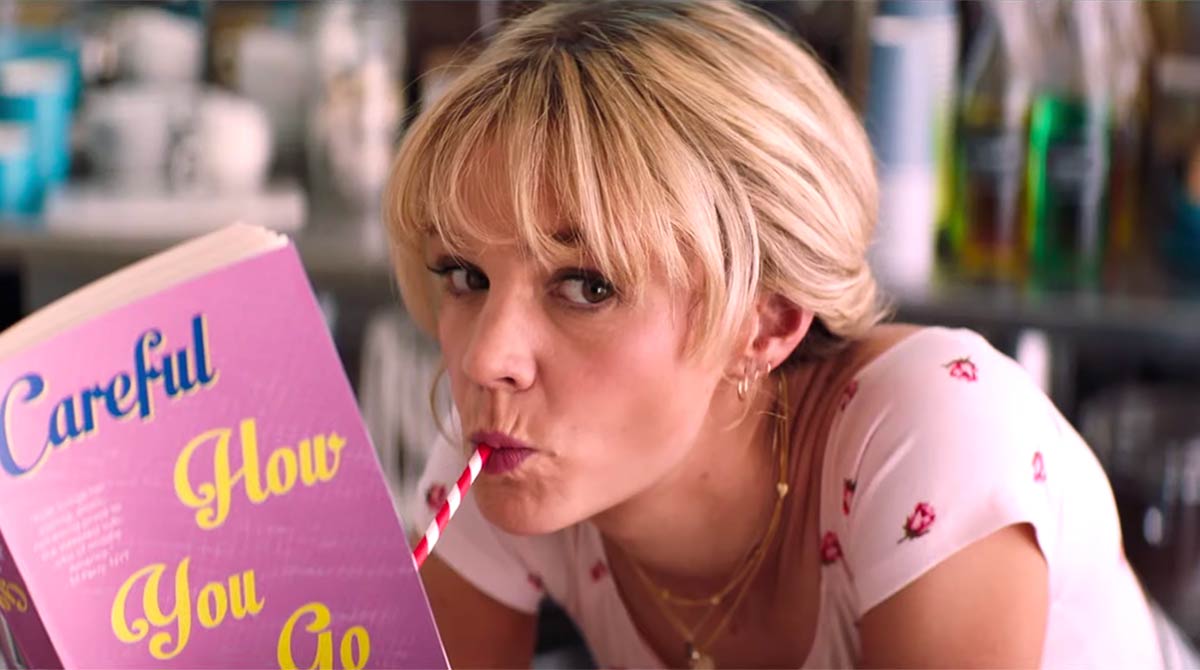How 'Promising Young Woman's themes extend to its savvy casting
Preconceptions play into the overall set-up of 'Promising Young Woman,' including the familiar "nice guys."

The latest updates, reviews and unmissable series to watch and more!
You are now subscribed
Your newsletter sign-up was successful
Want to add more newsletters?

ONCE A WEEK
What to Watch
Get all the latest TV news and movie reviews, streaming recommendations and exclusive interviews sent directly to your inbox each week in a newsletter put together by our experts just for you.

ONCE A WEEK
What to Watch Soapbox
Sign up to our new soap newsletter to get all the latest news, spoilers and gossip from the biggest US soaps sent straight to your inbox… so you never miss a moment of the drama!
This post contains detailed spoilers for Promising Young Woman.
Drastically changing her costume, hair, and makeup to match the scenario, Carey Mulligan is a chameleon as Cassie in Promising Young Woman. A hard to categorize narrative that bends genres, Emerald Fennell’s feature directorial debut (from a script she also wrote) is darkly comedic and heartbreaking — a revenge fantasy in candy-color wrapping. Deftly walking the tonal shifts, it is vital to cast a lead who can effectively navigate the emotional rollercoaster required while wearing different masks. From period dramas such as Far from the Madding Crowd to contemporary fare like Shame, Mulligan has a proclivity for playing characters who share an ability to plaster a smile over their pain. The Oscar-nominated actress is not the only casting triumph in a story that breaks down the “nice guy” myth with a rotation of recognizable boy-next-door favorites and women who often play supportive and trustworthy figures.
“Every fucking week a nice guy like you comes over to see if I’m okay,” Cassie tells Neil (Christopher Mintz-Plasse) when he repeatedly exclaims “I'm a nice guy.” Believing her to be incredibly intoxicated, he tries to ply her with cocaine before “seducing” her. The revolving door of “nice” guys features several familiar faces including Mintz-Plasse. By casting recognizable actors who are best known for lighter comedic roles, casting directors Mary Vernieu and Lindsay Graham further emphasize the insidiousness of these actions.
Adam Brody is still probably best known for winning over audiences in the mid-00s as The OC’s resident hot nerd Seth Cohen. Rewatching this series is part rose-tinted crush nostalgia, part realizing that some of his romantic overtures border on excessively pushy and his complaining is no longer charming. Nevertheless, those fond memories mean that when Brody turns up, a certain section of the audience will bask in the glow of a past TV crush. Brody seems safe — not to mention he is married to Leighton Meester IRL and is one half of a Josh Schwartz couple crossover — so it is easy to believe his character Jerry will be kind to the seemingly wasted Cassie in Promising Young Woman’s opening sequence. What follows is a reminder that appearances can be deceptive, particularly when expectations and preconceptions are part of the equation.
It isn’t just Brody, as pretty much every character complicit in the random nightclub encounters and the past event that motivates Cassie’s revenge plot are a figure that has played a likable and trustworthy character on TV. In the opening scene, Jerry is not the only one who has his eyes on the messy drunk girl. Played by Sam Richardson — who played Veep scene-stealer Richard Splett — Jerry’s buddy Paul is more vocal in his Cassie judgments in this opening scene. Later, Paul picks her up at a different bar — she tailors her attire to the venue in question — before her ruse is ruined by nice guy love interest Ryan (Bo Burnham). This cast of familiar men is an effective tool in making the audience question entrenched ideas. “If you’re making a movie about a complicated subject, it’s very easy to talk about this stuff when the people involved are people you don’t like or respect, or you’ve always thought were sleazy,” Fennell told Entertainment Weekly when discussing the impetus for casting such recognizably funny and charming actors.
Not one but two Veronica Mars love interests play a pivotal role in the original rape allegation that led to Cassie’s career change from future doctor to current vigilante. Officer Leo was a sweetheart (although definitely too old to be interested in a high schooler), but Max Greenfield is perhaps best known for playing Schmidt on New Girl. While he had to put many dollars in the “Douchbag Jar” over seven seasons —thanks to a lot of questionable comments — this character is not on the same creep scale as his Promising Young Woman turn. Schmidt is inappropriate in his commentary, however, Joe is an accomplice cheering on a rape while filming the crime. To him, this is just another drunk prank and the result of youthful exuberance.
Chris Lowell portrays the infamous Al Monroe who Cassie’s best friend Nina accused of rape in med school. He is the predator that infiltrates every moment, but who we don’t see — other than photographs on social media — until Cassie arrives disguised as Al’s surprise bachelor party stripper in a multi-color wig and nurse’s uniform. Sure, his friends seem like drunken monsters but Al doesn’t want to partake in the festivities, and for a brief moment it seems like maybe he isn’t the villain we are told he is. After all, the friendly boyish smile Lowell has used on Veronica Mars and GLOW is non-threatening and deployed during this initial encounter. Except, we know he is the person who sexually assaulted Nina and this underscores why Fennell opted for a murders’ row of TV nice guys. What follows is a reminder that appearances can hide a lot, including an insidious crime.
The latest updates, reviews and unmissable series to watch and more!
The good fortunes of Al Monroe also point to how alleged perpetrators are treated based on their haircut, clothes, and where they go to school. The “we were just kids” defense is leveled by several participants including Alison Brie’s “perfect mom” Madison. Sporting the same hairstyle as her GLOW character Ruth, it is jarring to see the actress go from someone who always has her friends’ backs to another complicit figure in the cover-up. Not only does she blame Nina for being blackout drunk, but it also transpires that she has a video of the incident on an old phone. Madison remarks that it was shared because it was funny — she has enough awareness to be disgusted at her past self — and Fennell observed to Entertainment Weekly, “It’s a culture we grew up in. Every moment that feels shocking in my movie is something we’ve seen in comedies and TV shows over the last 10 years.” She isn’t turning this into a battle of the sexes, rather the director examines how sexual assault has previously been viewed and portrayed through a lens of so-called humor.
For all the supposed nice guys who believe themselves to be the white knight swooping in to save the drunk girl, perhaps the most disarming casting is another actress who has previously played an educator on Friday Night Lights who always looks out for the female students. Connie Britton serves up concerned empathy as Dean Walker, but she cannot even remember the complaint Nina filed against Al Monroe. When she hears Al’s name her face lights up with pride because he is a success. Cassie slowly reveals piece by piece of the story, beginning by quoting back her assessment at the time, “You felt there wasn’t sufficient evidence. You said it was “too much he said/she said” situation.” Dean Walker also victim blames Nina pointing out “she was drinking and couldn’t remember everything” before suggesting it was a “bad choice” rather than something inflicted on her. Every line is one we have heard before when cases like this are discussed — including the idea that this could “ruin a young man’s life” with little (or no) regard for the accuser. Tami Taylor would never, but this is why it is so effective casting Britton and the other supporting actors in roles that subvert expectations.
Emma Fraser spends most of her time writing about TV, fashion, and costume design; Dana Scully is the reason she loves a pantsuit. Words can also be found at Vulture, Elle, Primetimer, Collider, Little White Lies, Observer, and Girls on Tops. Emma has a Master’s in Film and Television, started a (defunct) blog that mainly focused on Mad Men in 2010, and has been getting paid to write about TV since 2015. It goes back way further as she got her big start making observations in her diary about My So-Called Life’s Angela Chase (and her style) at 14.


